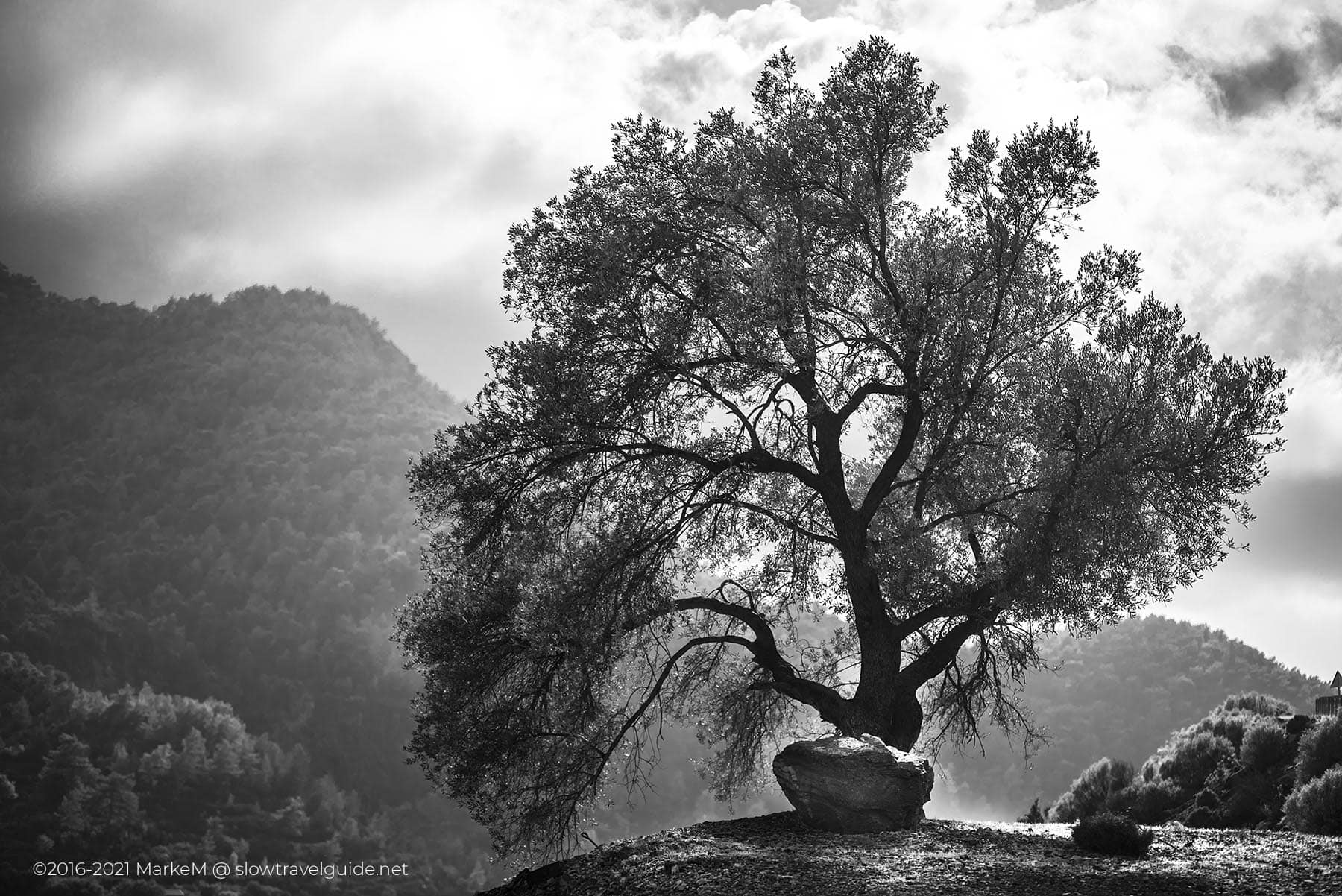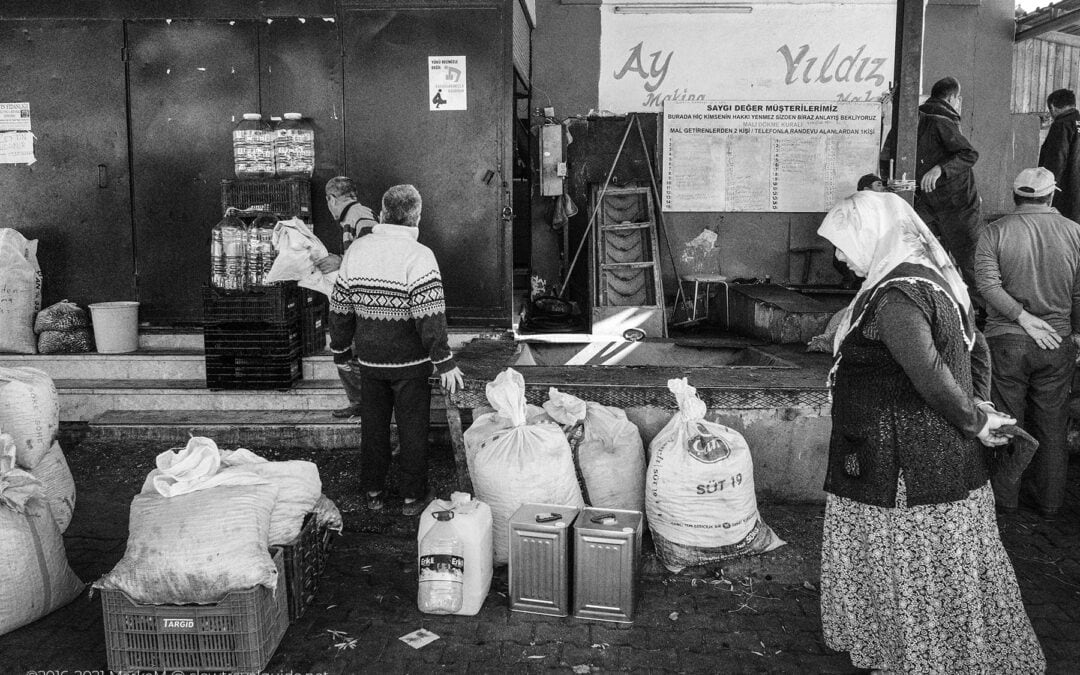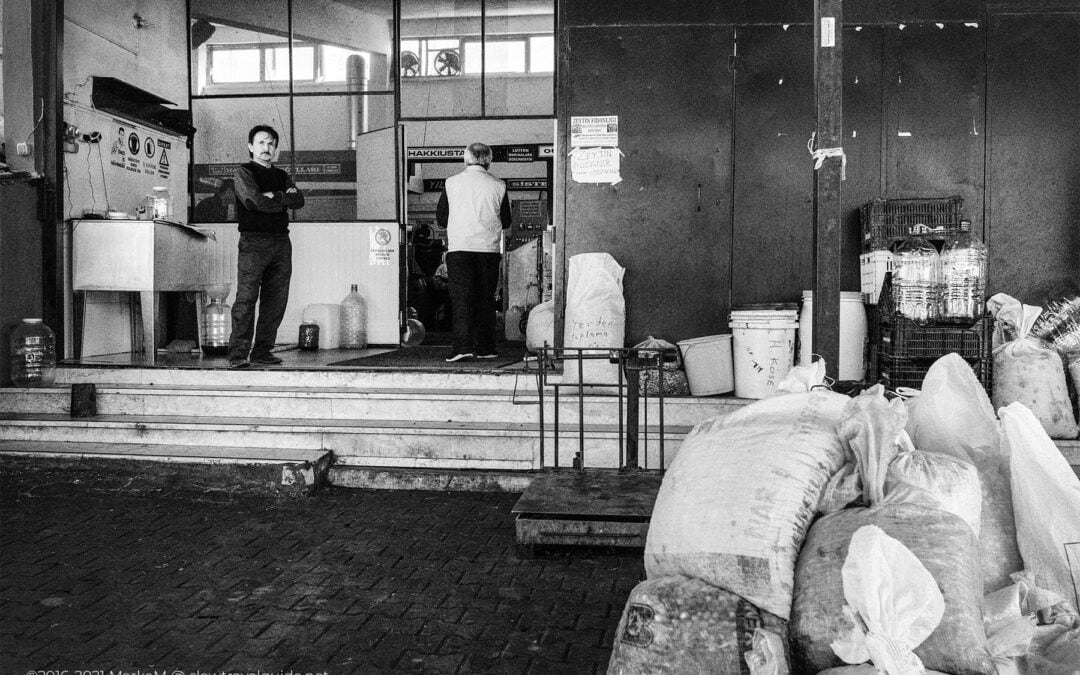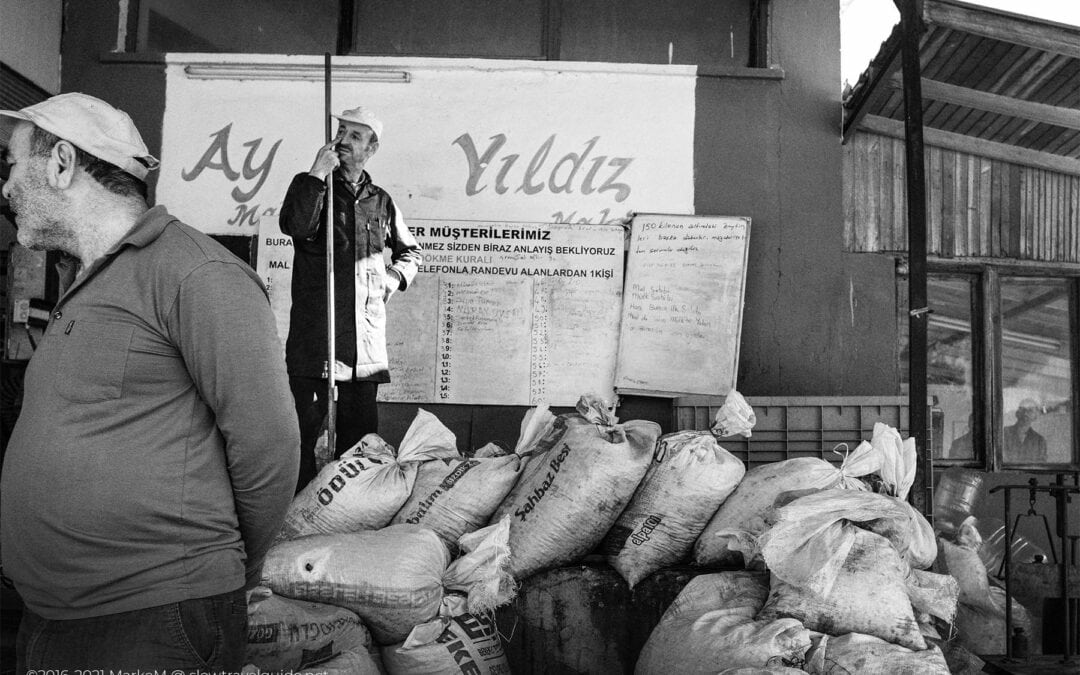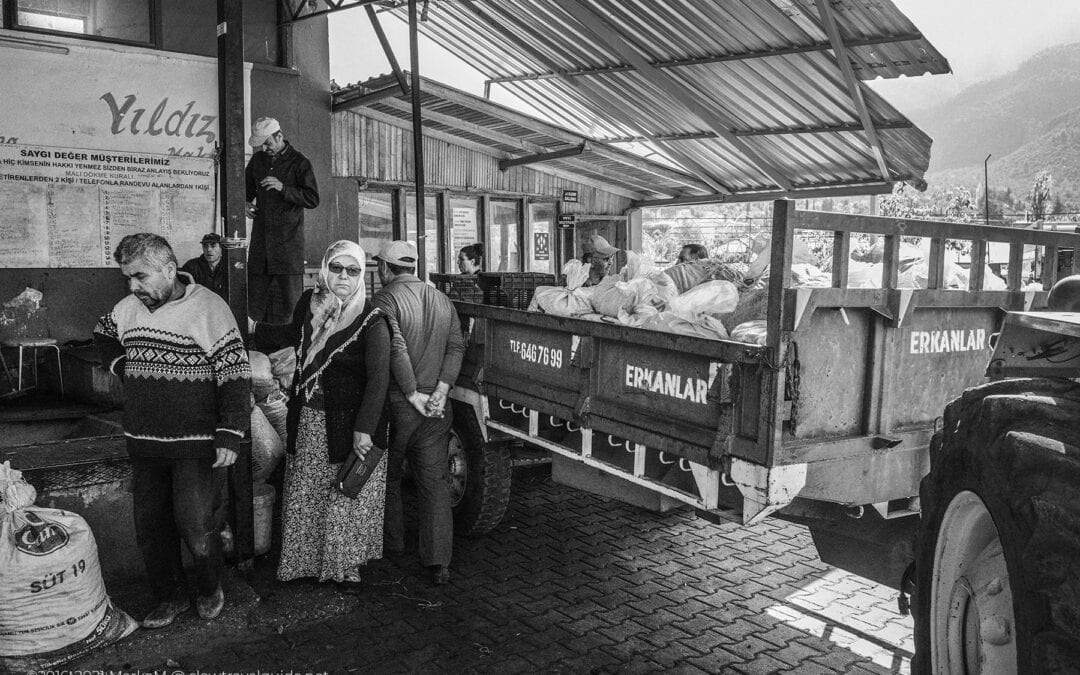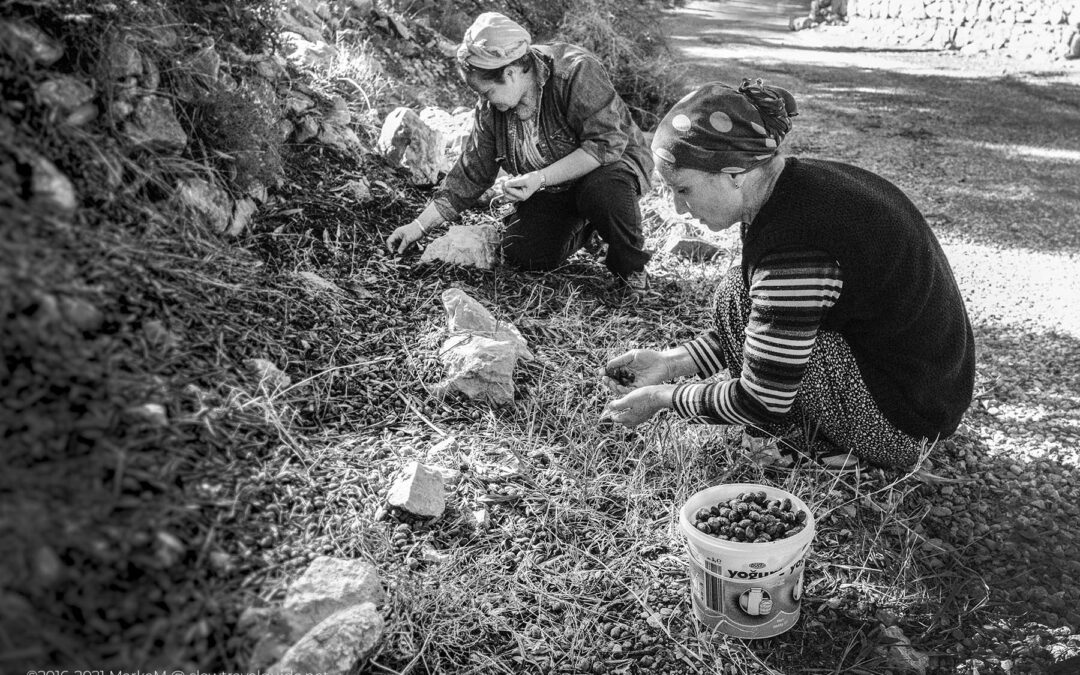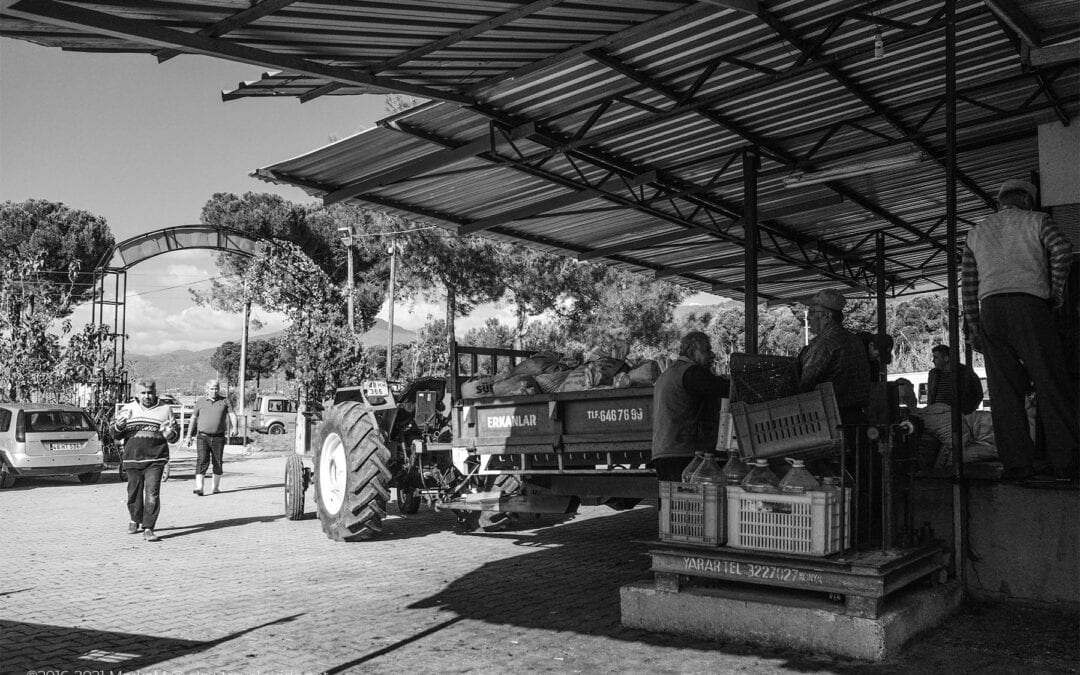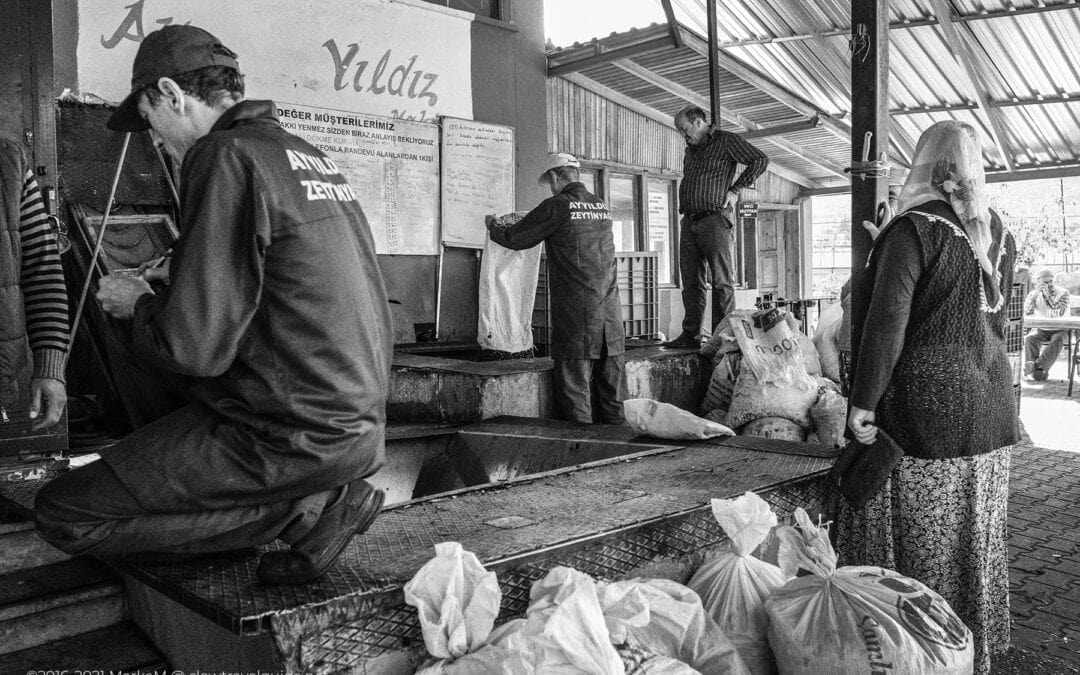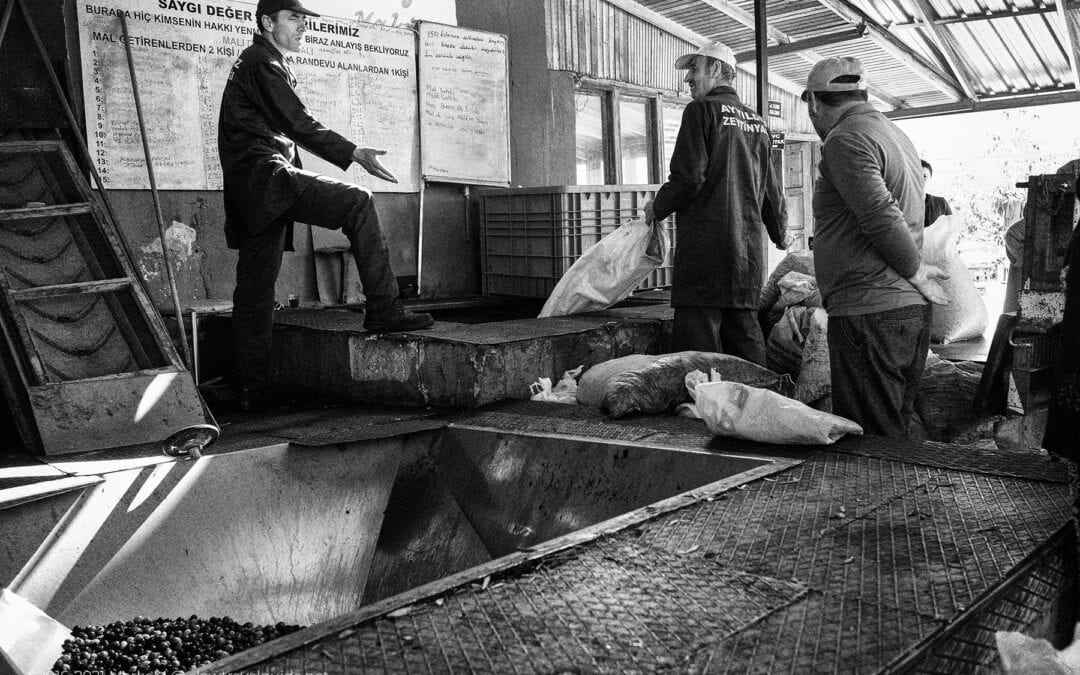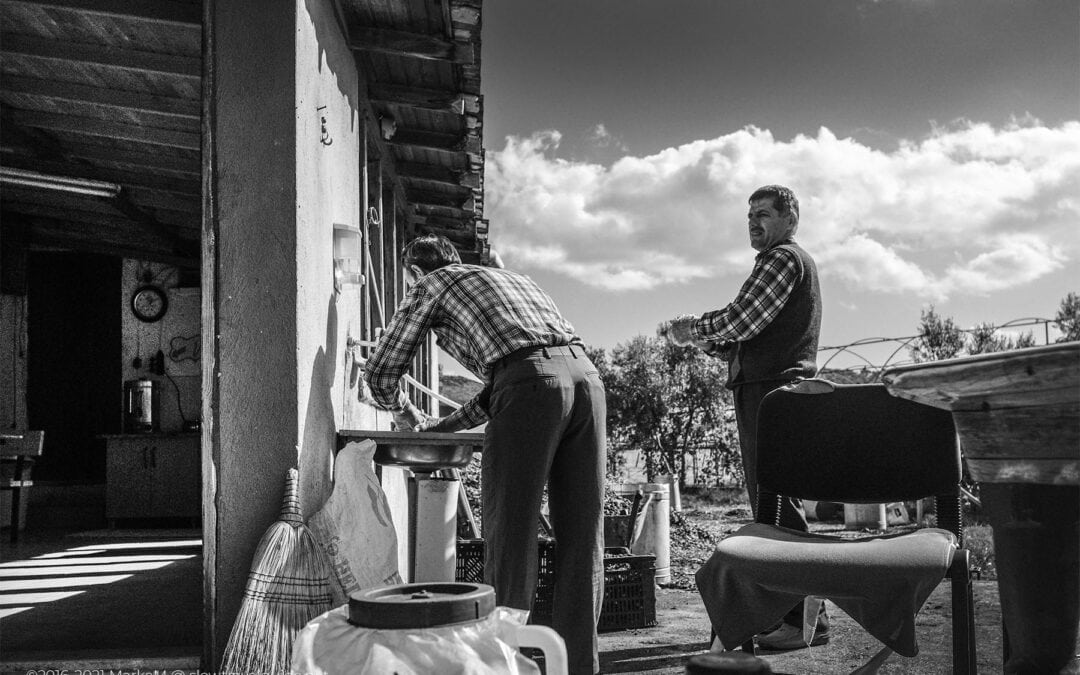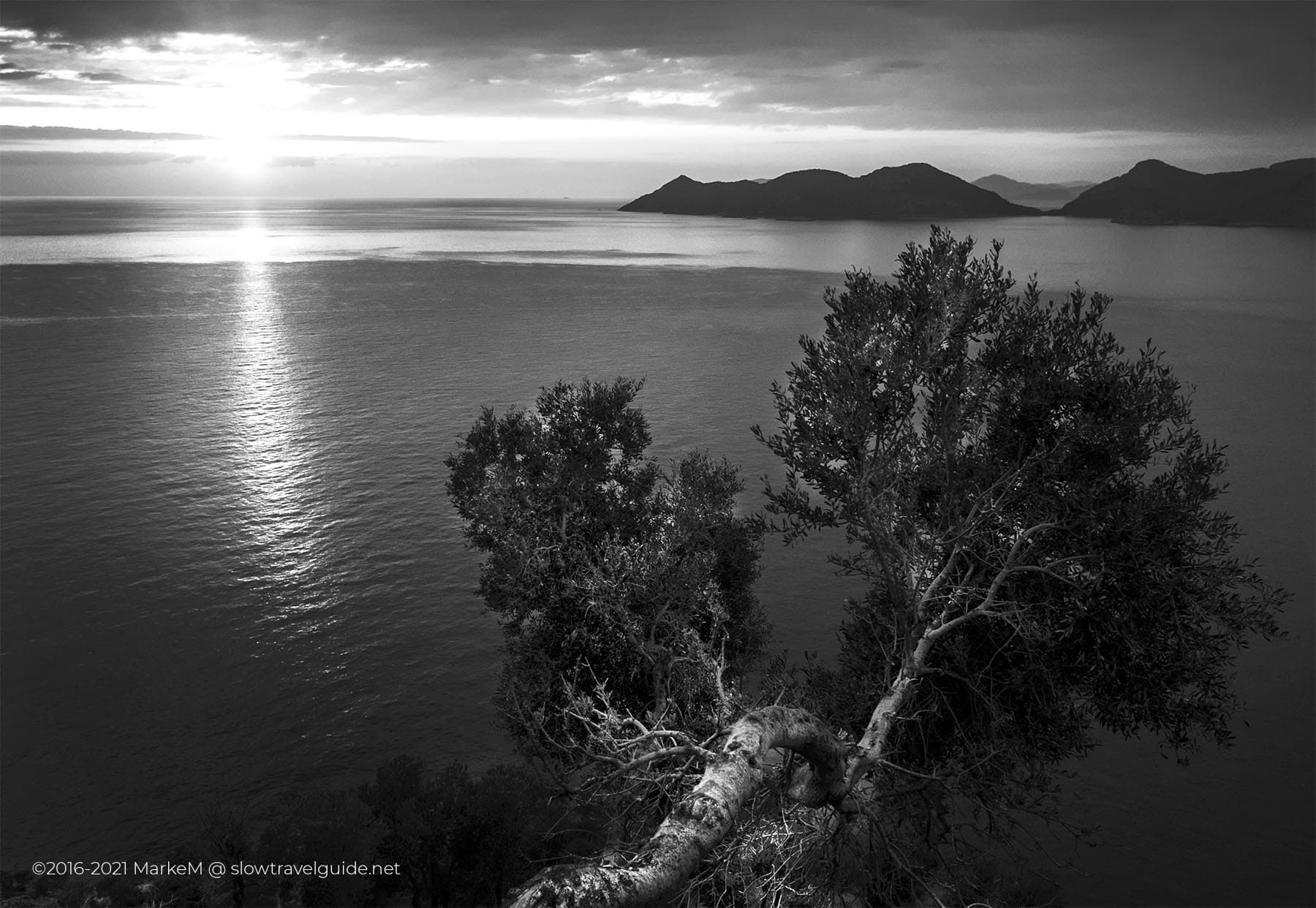Olive Harvest
Olive Harvest in Turkey
Precious In Every Way!
It couldn’t have been planned in a better way in nature: after the tourist season ends, it is time to harvest olives in Turkey. As life returns to the off-season, villagers in Turkey are preparing the olives for winter. These preparations include obtaining wood supplies, drying fruits, herbs and spices, pickling vegetables and, of course, the annual olive harvest. Every free time is dedicated to gathering precious olives from the many olive trees.
Their ripeness determines, if olives will be pressed into olive oil or cured naturally for consumption on any occasion. You can take our word for it; there is nothing more pleasing than using olive oil from an olive tree or tasting the olives from an olive tree. Turkey’s olive harvest season represents precious time, if only because it is a joy to witness the love, time and dedication that the Turks put into it. As a tribute, we have created this black and white photo diary.
When To Harvest Olives?
This is not an easy question! At least for inexperienced olive harvesters. Villagers in Turkey knows when to pick olives and what to do with them. Yes, green olives and black olives come from the same tree, only the black olives are ripe, and the green olives are not. Your pickled olives or olive oil will taste different depending on when you picked it. In any case, once the olive harvesting begins, wherever you go, even on the street, you will see people under the olive trees.
Olives are valuable and cannot be wasted. It’s great to see how men, women, and even families spend their day collecting olives using various methods. It all ends with the same thing: the olives are put into large woven bags and taken to the mill to make olive oil. Or put them in a smaller basket for pickling.
From Olive To Olive Oil
Pressing olives into oil after harvest is a priority. That’s why the factories works almost 24/7 during the olive harvest season. There was always a queue, but people were very patient, leaving us many photo opportunities. Depending on which mill you choose and when you show up, they will weigh your olive bags, set them aside, and give you the equivalent of pressed oil. Or, in this case, our preference, you are put on a schedule to wait until your olives turn into oil. Olive oil consumption in Turkey is high. It is common for a small Turkish family to use up to 30 litres of olive oil a year. Fortunately, the country is also the second-largest olive oil producer globally.
People from far and wide come to the mills. Some own olive groves; others pick olives on the street or help out at a neighbour’s place in exchange for some oil. Waiting for a miracle to happen is part of the deal. Many bags full of olives and a long list of names on the board at the mill. This is a tradition that returns every year. Back home, cars and tractors are filled with empty bags, ready for the next shipment of olive oil in metal or plastic containers.
Our favourite pickled olives recipe
Pickling olives is not rocket science. Having a good olive and some love and patience can help. Of course, there is also a good recipe. That’s why we are happy to share ours with you. All you need to do now is get some olives.
What is the secret of our olive marinating recipe? It is straightforward, using only natural ingredients to let nature work.
1. Prepare olives for pickling. The first step is to remove the bitter taste of green olives. Tip: Even black olives can be a bit sore before pickling. Adding black olives in the first step of this recipe will not cause any harm. Start by washing the olives. After that, just cut a few knives on each olive (we did it three times) and put them in a large bottle, jar or jar. Fill it with water, then put something on the olive to weigh it. This will prevent the olives from coming into contact with oxygen, which will spoil them.
2. Change the water every day and repeat for about ten days. If you hear a sizzling sound when you open the bottle or jar, don’t worry; this is entirely normal. After ten days, taste the olives (or two) to see if the bitterness disappears. Suppose it hasn’t; stick to it for a few more days until the irritation disappears. Once the olives no longer have a bitter taste, you can proceed to the next step.
3. Pickled olives. To pickle olives, you need brine. Count on 100 grams of salt per kilogram of olives. Tip: Put the olives and salted water in the pot or jar first. After that, pour the water back into another container to add salt. You can know precisely how much water is needed to fill the jar without wasting any salt. Again, use something to weigh olives to prevent contact with oxygen. Leave the olives in a dark place without moving for a month.
4. Enjoy your pickled olives. After a month, your olives are ready to eat. At this point, you can place them in brine (this will make the olives saltier over time), or you can place them in oil. Use cheap oil and make sure the olives are completely covered. Add some garlic, lemon, red pepper, or green herbs; this always looks great!
5. Use oil to cook. If you transfer pickled olives to (herbal) oil, do not throw away the fat when eating olives, but use it for cooking.
This simple recipe for marinated olives at home is foolproof. You will enjoy delicious home-marinated olives, but you will also benefit from the many health benefits of olives.
Visit Turkey During The Olive Harvest Season
You don’t need a special reason to visit Turkey during the olive harvest season. On the one hand: you will travel in the off-season and enjoy the authentic Turkish experience, away from seasonal entertainment. Please keep in mind that many hotels and other accommodations are closed at this time.
If you are looking for attractive places that stay open between November and January, we can recommend some places in the Fethiye area where these photos were taken.
© 2016-2022 All rights reserved by slowtravelguide.net.
The content of this website is copyright protected and the property of slowtravelguide.net.No part of this website may be reproduced in whole or in part in any manner without the written permission of the copyright owner.
Copyright ©2016-2022 Tüm hakları saklıdır. Bu (slowtravelguide.net.) web sitesinin içeriği koruma altındadır ve slowtravelguide.net.Buradaki hiçbir içerik (yazı,fotoğraf,video vb.) izinsiz olarak kopyalanamaz, alıntı yapılamaz,başka yerde yayınlanamaz.

